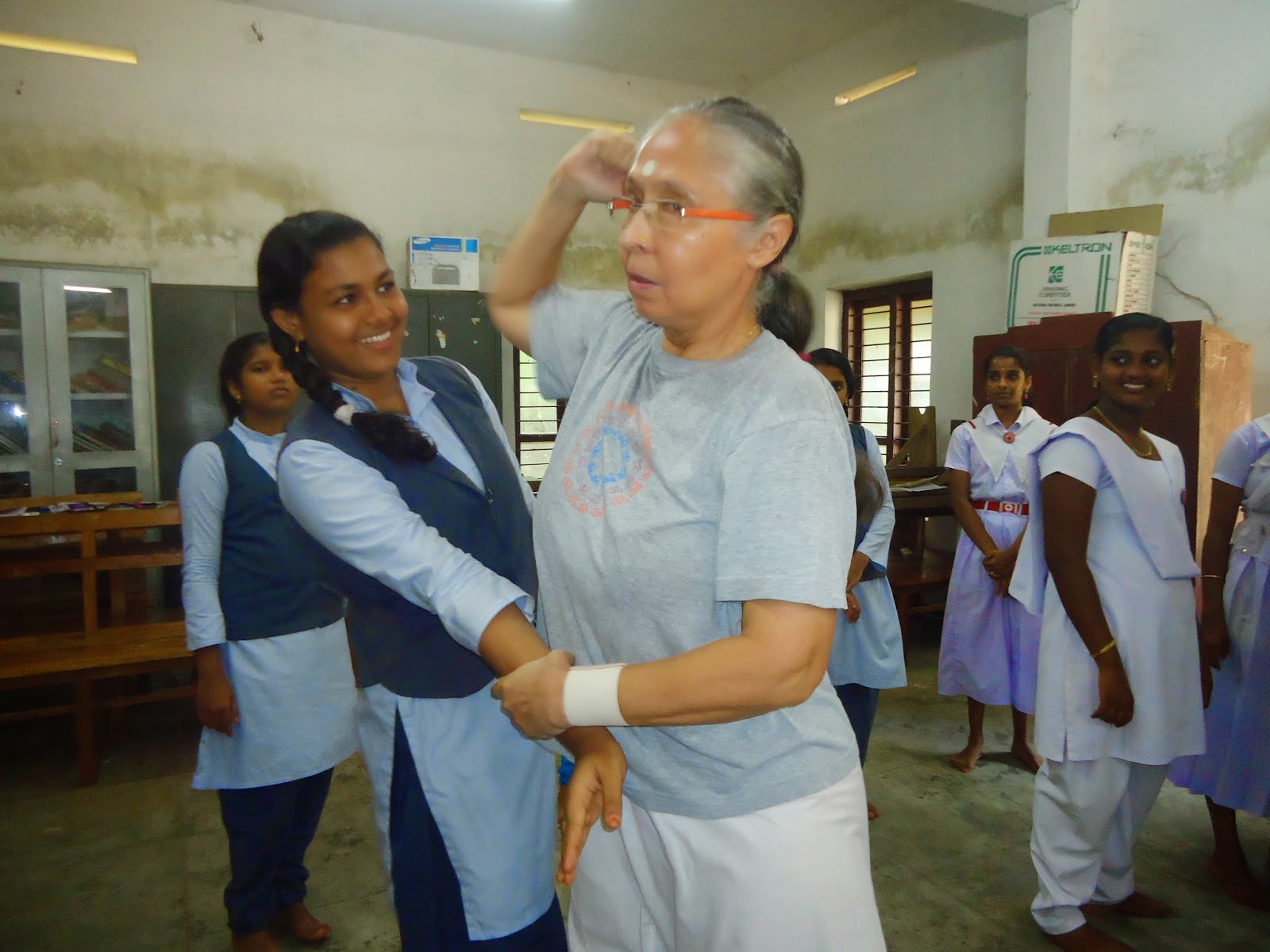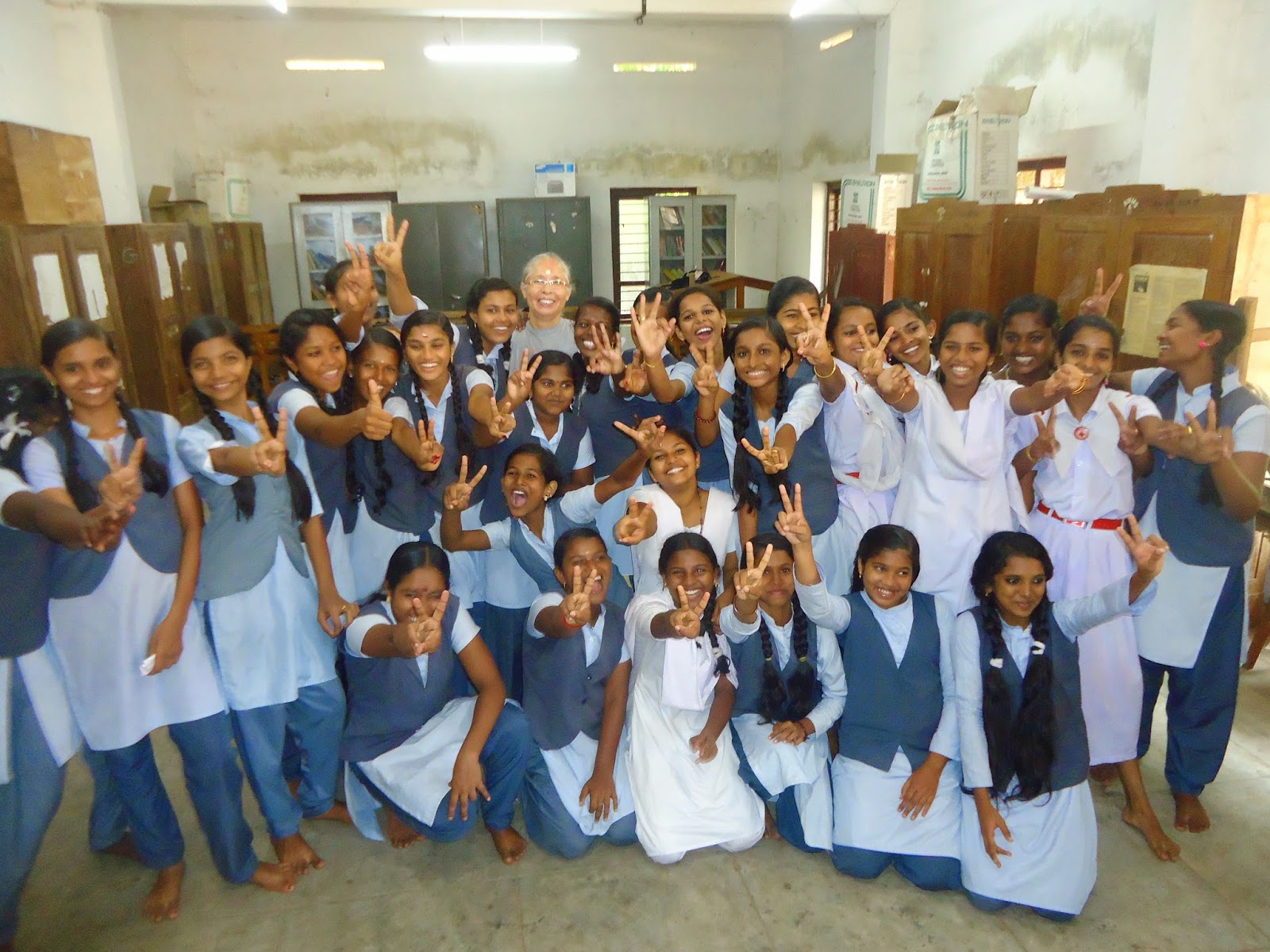 First
of all, thanks to SSR Project. You may be wondering what is SSR. SSR
stands for Student Social Responsibility Project conducted by our
college for all third year Engineering students. We can undertake any
project that is socially challenging or beneficial. We were divided
into teams of six. The first idea that clicked our brain was RCC
visit at Trivandrum. We were so excited to move with that idea. Next day
we contacted the RCC authorities. But BAD LUCK… They are not
encouraging any outsiders due to infection threat to the patients. We
had to drop our project . Then the next one…. Visiting Vimala
Hridaya, school for mentally challenged children. We ran up and down
the college for all the formalities and permissions. Finally we were
all set by one evening. But again bad luck. That project was chosen
by another team. Again disappointment… Then complete silence for a
few days….
First
of all, thanks to SSR Project. You may be wondering what is SSR. SSR
stands for Student Social Responsibility Project conducted by our
college for all third year Engineering students. We can undertake any
project that is socially challenging or beneficial. We were divided
into teams of six. The first idea that clicked our brain was RCC
visit at Trivandrum. We were so excited to move with that idea. Next day
we contacted the RCC authorities. But BAD LUCK… They are not
encouraging any outsiders due to infection threat to the patients. We
had to drop our project . Then the next one…. Visiting Vimala
Hridaya, school for mentally challenged children. We ran up and down
the college for all the formalities and permissions. Finally we were
all set by one evening. But again bad luck. That project was chosen
by another team. Again disappointment… Then complete silence for a
few days….
Then
we came up with new more ideas. We wanted to do something that will
stay in future in the name of our project. That’s how we thought of
Self Defense for girls, Organic Gardening and Computer Skills for
students. We wrapped these ideas into one project… TOGETHER
TOWARDS A BETTER FUTURE.
As
usual, we started up with a group discussion. We divided our project
into three parts
Nirbhaya
- Self defense class for girls
Swasth
- Organic gardening
Aastha - Computer skills for students
Aastha - Computer skills for students
Here our journey starts….
First step was to get a lady who is trained in martial arts. We came to know about one from our seniors. We ran to ashram(Mata Amritanandamayi Math) to meet her.. Again the luck factor plays the role. She went to Australia, her home town. Again disappointment. But, the people in International office gave us a ray of hope. They said that there is another lady who is trained in martial arts. They took our phone number telling that they will ask her to contact us. But, still the hope was too far… We waited for next two days for a phone ring… But nothing happened. Suddenly after some days we got a call. It was her, calling us asking to meet her. The very next day, we ran to ashram with all the hopes fulfilled. But when we saw her, we were hmmmmm. She is pretty old. Her name is Ms. Nirupama. She told us that she is no longer practicing and it would be hard for her to take a workshop. But we didn't give up. At last we got a YES from her. That was great a response. We are again in ON mode.
First step was to get a lady who is trained in martial arts. We came to know about one from our seniors. We ran to ashram(Mata Amritanandamayi Math) to meet her.. Again the luck factor plays the role. She went to Australia, her home town. Again disappointment. But, the people in International office gave us a ray of hope. They said that there is another lady who is trained in martial arts. They took our phone number telling that they will ask her to contact us. But, still the hope was too far… We waited for next two days for a phone ring… But nothing happened. Suddenly after some days we got a call. It was her, calling us asking to meet her. The very next day, we ran to ashram with all the hopes fulfilled. But when we saw her, we were hmmmmm. She is pretty old. Her name is Ms. Nirupama. She told us that she is no longer practicing and it would be hard for her to take a workshop. But we didn't give up. At last we got a YES from her. That was great a response. We are again in ON mode.
Things
became more easy after meeting her. When we told her about the other
two ideas, she took us to the organic garden there in ashram and we
were directed to the organic farm near the ashram beach. But we
couldn't meet the concerned person over there. We were asked to come
on next day. Again next day… We went there and waited around 3
hours. Finally we met Gurudas swami who is in charge of Organic
farming in ashram and he provided us with some vegetable seeds and
saplings. Thus the day 13th November was fixed for the project and
everything was done.
 On
13th November 2014
On
13th November 2014
By
8:30 am we reached ashram to pick Nirupama Ma’am. She was all set.
We hired an auto to Thazhava higher secondary school. By 9:45 we
reached the school. We could see many innocent faces looking at us
amazingly. Something that took me to my past was the sight of
teachers caning the students for silly reasons. It took sometime for
us to get back from our childhood days. We spoke to the principal and
we had to wait till 10:30 to start our session.
By
10:30 am, IXth standard students lined up and came to the library.
Library was the spot allotted to us to conduct our session. All were
very enthusiastic to know what is going to happen. We introduced
ourselves and Nirupama Ma’am to them. It started with a warm up.
She taught the basic methods of defending, when they are attacked
from behind, front and various other directions. We ourself became
trainers to them repeating what she does. It lasted for two
hours.They were very eager to learn more. We had a great satisfaction
when we saw their interest. They really didn’t want to leave
Nirupama Ma’am. They hugged and kissed her. The session got over by
12:30 pm. Then it was time for lunch. School authorities had arranged
lunch for us. After lunch, Nirupama Ma'am returned to ashram.

Then we had Organic farming where we took a session for Viith and VIIIth standard students. We were amazed to see their interest. More than us, they shared the knowledge and experieces. We talked about chemical pesticides and the future of mankind if we continue using chemicals in food. We also discussed about why Organic farming is important. We then distributed organic seeds, saplings and compost which we collected from ashram to the students. They promised that they will surely take care of the plants.
 The
next agenda was Computer Skills for IXth standard students. Due to
time limit, we had to stop it in one hour. We taught them basic Linux
commands and how to use Linux and its features. We also talked about
Cyber crimes and security.
The
next agenda was Computer Skills for IXth standard students. Due to
time limit, we had to stop it in one hour. We taught them basic Linux
commands and how to use Linux and its features. We also talked about
Cyber crimes and security.
And,
thus our project came to an end. We had a great time with students.
Thanks for the students who corporated with us. We understood that
they enjoyed it a lot and they need more programs from us. We got a
very good feedback from the students and teachers. More than a
project, it was an awesome learning experience.
A
great thanks to our college CIR(Corporate and Industrial Relations)
and the faculty members for giving us a Social Responsibility project
to learn from experiences. Though we had hurdles in the beginning,
everything went well with god's grace. Now, when we think of the
difficulties we had, its a great joy to cherish. Once again I would
like to quote “Experience is the best teacher”.



